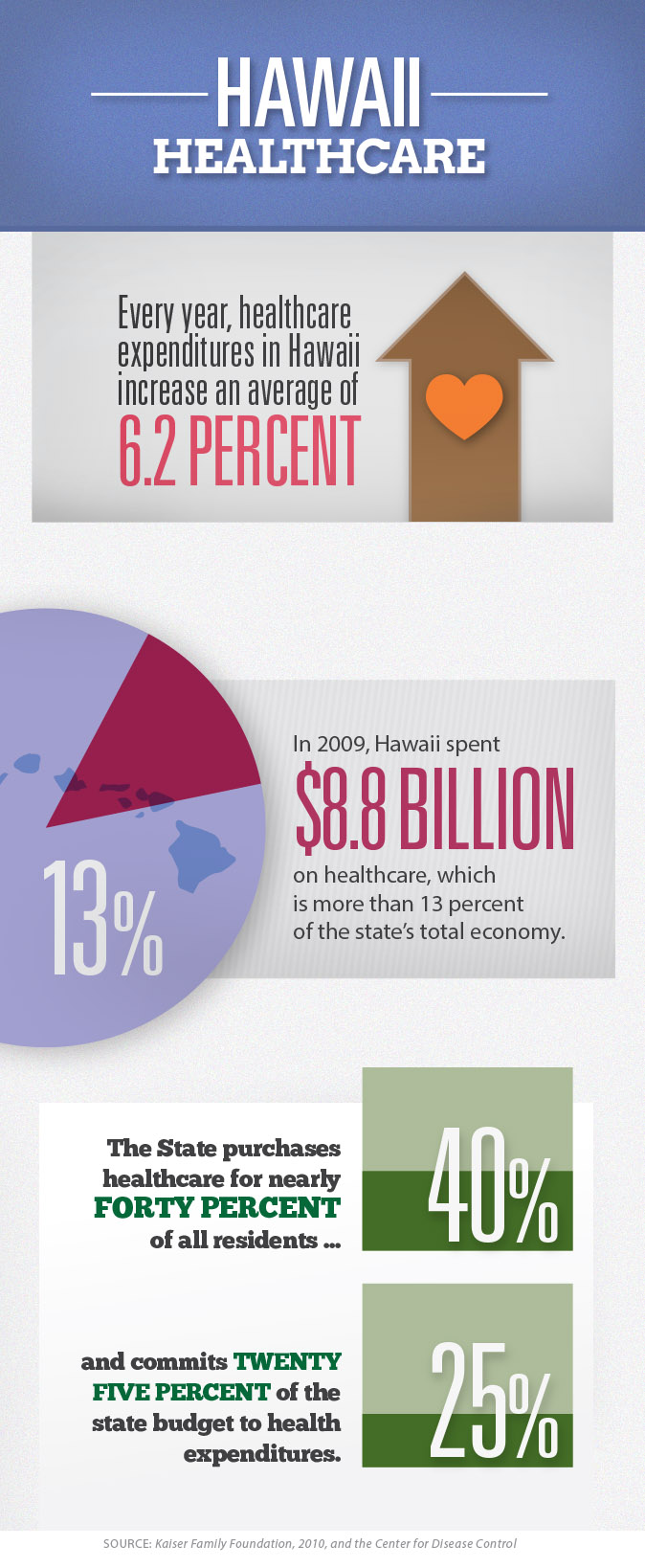
Healthcare is a high-stakes, high-cost service that’s in need of urgent attention. While Hawaii is a leader in key areas of healthcare—including having the second-lowest percentage of uninsured residents in the nation—unsustainable cost increases and uneven quality of care issues are among the problems the state must address to ensure a healthy population and a system that functions optimally for consumers, providers, insurers, employers and others affiliated with the healthcare system.
Gaps in Hawaii’s healthcare system include:
Hawaii is experiencing a chronic shortage of primary care physicians, especially in rural and inner-city areas. The State is marked by health disparities associated with poverty, increasing rates of obesity and chronic diseases, and inadequate access to mental health and dental services for those most in need. At the same time, more than 13 percent of Hawaii’s economy goes to healthcare costs. The State purchases healthcare for nearly 40 percent of all residents and commits 25 percent of the state budget to health expenditures.
These gaps and costs have created an imperative for public and private entities to unite to address these issues and create solutions that will change the system. With the Supreme Court’s recent upholding of the Affordable Care Act, Hawaii has new tools and support to continue its effort to transform healthcare.
“Hawaii has been a pioneer in healthcare since 1974 when the state passed the Hawaii Prepaid Health Care Act, but we need to do more to curb the rising costs of healthcare and ensure quality care for every man, woman and child in Hawaii. We need a system in which patients are engaged, physicians are held accountable, and all residents have access to high-quality, affordable healthcare.”
![]()